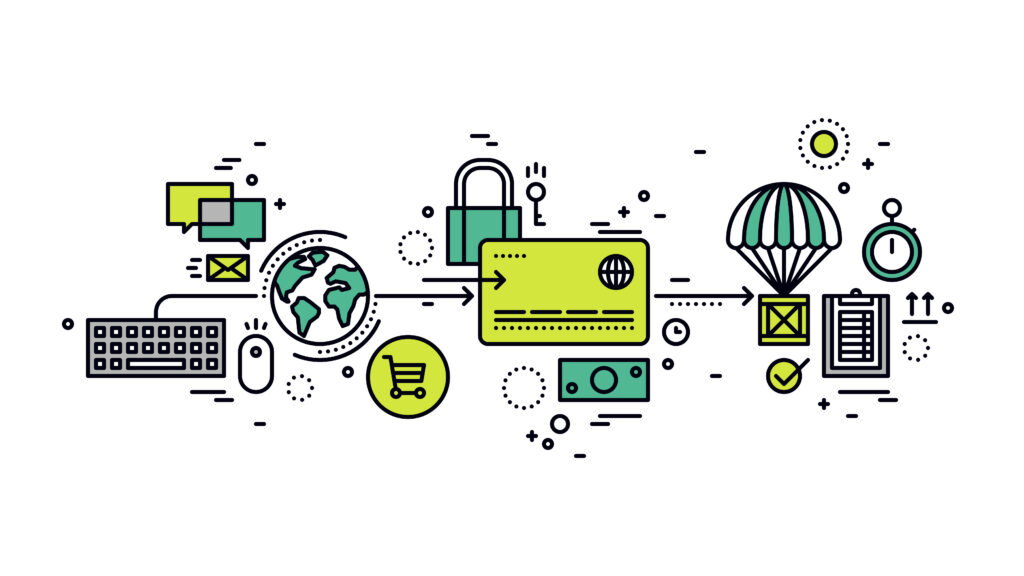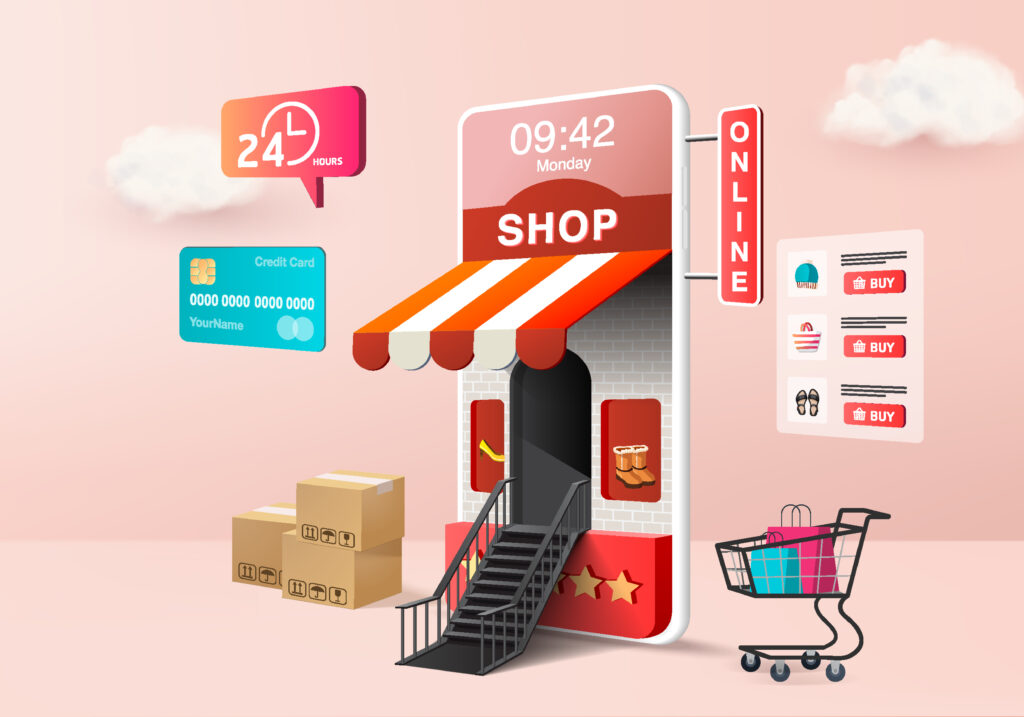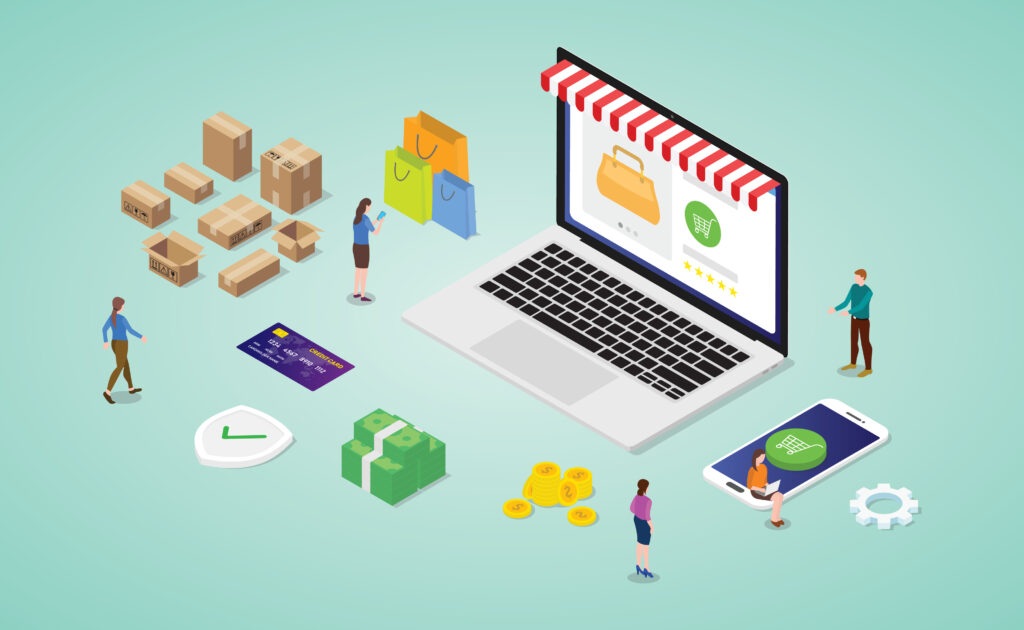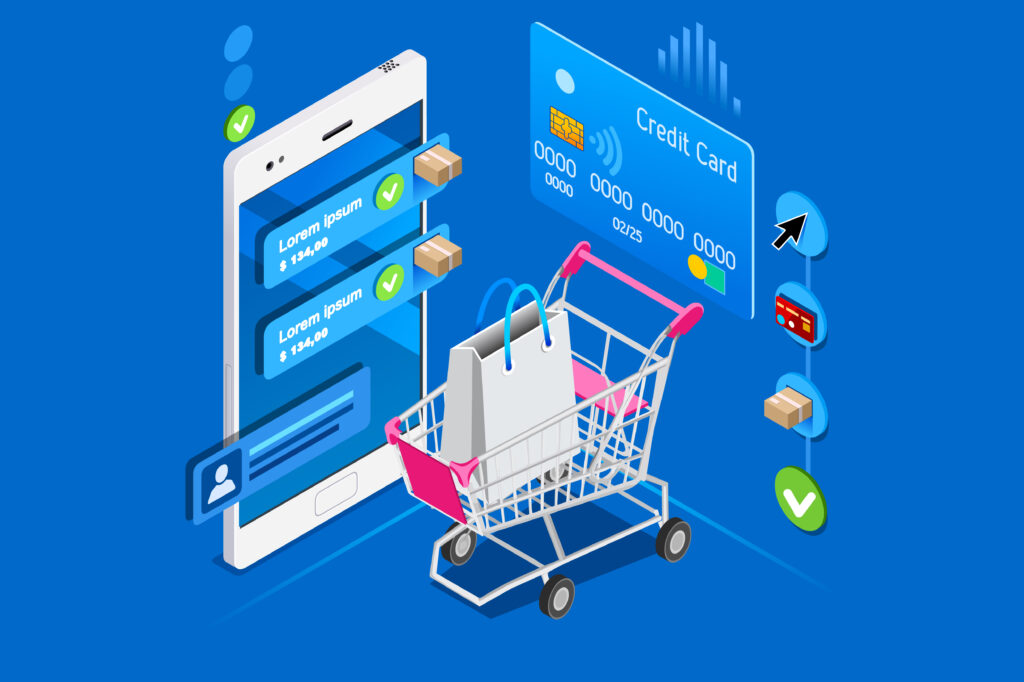LogiCommerce is trusted by global enterprise brands and wholesalers, across industries
Only you know how much it costs to set up and maintain an online store.
Endless hours configuring your website, designing products, setting up channels for refunds, transactions, not to mention all the investment in payment campaigns to capture leads.
And when you have everything, and the customer is about to buy… oops!
Your checkout fails, either because it is not well integrated, or because you don't have payment methods adapted to your customers.
Below you will learn which online payment methods are the most popular in different markets and why optimizing your checkout is essential to improve your sales.
Contents
We agree that the eCommerce world is on fire, so if you have a website, it is essential to have an easy and secure way to accept online payments.
Keep in mind that to improve your user experience, customers must have reliable payment methods with which to make their purchases. According to Marketing4eCommerce, 46% of Spanish consumers prefer to shop at online stores that offer their favorite payment methods.
MultiSafepay, for example, allows you to choose from a wide variety of innovative payment solutions, totally flexible and very familiar to boost the growth of your business.
Let's take a look at some of the online payment methods below to find out which ones are the favorites for users in different marketplaces.

Credit or debit cards are one of the most popular online payment methods, as they offer a lot of flexibility and versatility.
They are recognized in a multitude of countries and provide users with the convenience of making purchases with their favorite card. In addition, it is an effective way for them to easily track their payments through their bank statements.
Visa, Mastercard, Maestro and even American Express for the most demanding customers, top the list of favorite payment methods for users, even. Visa has even gone further, and now has VPAY, with over 13 million users.
Incorporating the most popular cards into your checkout is a great way to increase customer satisfaction and thus improve your conversion. For example, Cartes Bancaires has over 70 million users in France and Postepay is the favorite debit card of Italians with over 15 million cards in circulation.
eWallets are becoming an increasingly popular method of payment. As the world moves toward a cashless society, digital wallets offer a fast and secure option.
They also allow users to store and manage their money digitally, making payments easier than ever.
Paypal has the largest market share with 44% in Spain, but it is also true that in recent years it has seen its share reduced by the entry into the market of other competitors.
Google and Apple Pay, Amazon Pay and specific digital wallets for the Chinese market such as Alipay + and Wechat have been gaining more and more weight in the local and global market with millions of users around the world.
Thus, the percentage of users using eWallets is growing very rapidly. In fact, it is estimated that by 2025, more than half of all online transactions will be made through digital wallets.
eWallets are global payment methods, although each market may have its own preferences. For example, the Netherlands and Italy with Apple and Google Pay.
Online banking is a convenient and secure method of payment for your online store transactions.
Your customers can transfer funds directly from their own account to your business account, eliminating the use of credit or debit cards or any other payment method.
Accepting payments through online banking can offer several advantages, such as lower transaction fees compared to other methods, and greater accessibility for your customers, as most banks have their own online banking and mobile payment app.
Bank transfer allows customers to transfer and receive money easily throughout Europe and partner states, however, the favorite solution for Italians is MyBank, in the Netherlands iDeal and Germany Giropay. In addition, you can also find solutions such as Sofort or Trustly that allow users to make their purchases easily even when it comes to recurring or deferred payments and is quite widespread in Europe.

BNPL solutions are becoming more and more relevant in the world of online stores, as they allow your users to finance and defer their purchases.
Although the incorporation of BNPL solutions has been late in southern Europe, according to Bolsamania 43% of Spaniards have already requested this form of deferred payment for their online purchases, especially for high ticket products or also as a way of not leaving their accounts overdrawn.
The arrival of Klarna in Spain has been a breakthrough in this regard and today, most of the eCommerce has this payment method in its checkout.
Other successful BNPL solutions in other countries are Pay After Delivery or IN3 in the Netherlands or Riverty in Belgium. Keep this in mind, if you are targeting some of these countries.
Although it is sometimes complicated to have an optimized checkout, here are 2 key points.
You can choose between 2 payment methods that are perfectly compatible with the payment methods you already have integrated in your online store: recurring payments or one-time payment.
They are not mutually exclusive, so you can choose to incorporate both into your online store, but if you want to give your business a push, incorporating recurring payment is not silly.
It is perfectly compatible with credit or debit cards, eWallets, transfers and with this you can increase and regularize your income month by month while facilitating the access of users to your product or service.
There are several ways of recurring payment, but the best known are the famous subscription payments, which you charge through a card or direct debit a monthly fee for your product or service.
As we have already mentioned, the key for any online business is to have an optimized checkout that reflects the favorite payment methods for customers.
Therefore, you must consider the market in which you operate and adapt your payment methods to it, to improve the user experience and thus your sales.
For example, Bizum is an important payment method for the Spanish market, so many eCommerce has it integrated in their online store, but for example for Italy it would be much better to have MyBank or IDeal if we talk about the Netherlands.
MultiSafepay, for example, pays a lot of attention to this aspect showing the payment methods in your checkout automatically sorted according to the market in which you operate.
If you plan to internationalize your business, it is important that you inform yourself well with your payment provider which payment methods you should incorporate so that your customers feel safe on your website and can generate an engagement that will make them come back.

When you expand your eCommerce to new geographic areas, there are many factors to consider, such as language barriers, currencies, taxes, payment systems, shipping methods and more. However, if you use a Headless platform like LogiCommerce, you can easily adapt to the needs and trends of each country thanks to this latest technology that offers exceptional customer experiences throughout the entire checkout process.
With LogiCommerce, you can customize content by market, connect with your favorite domestic and international carriers, adapt taxes, optimize SEO, create market-specific campaigns, easily integrate with third-party solutions and offer preferred local payment methods, among many other things, thanks to more than 200 native features.
In fact, local payment methods are especially important in the expansion of any online store, as they can directly influence the final purchase decision of the business. It is essential to convey confidence and security to consumers at checkout and to use the most widely used and well-known local payment methods for each location to create a seamless shopping experience and a long-lasting relationship with customers.
Choosing a good payment service provider (PSP) is one of the most important decisions to make, so that your eCommerce payments are really frictionless.
A PSP is an essential partner for any online business, since in terms of payments, it is the link between you and your customers.
Therefore, it is crucial for your online store to choose the one that best suits your goals, otherwise it could generate extra costs and less protection against fraud, slowing down your growth both locally and globally.
As we have explained throughout the article, it is key that your PSP has a wide variety of local and global payment methods that are easy to integrate and, if necessary, have the capacity to help you in your expansion process.
In addition, it is also important to choose what type of checkout you want to integrate into your online store, whether hosted or embedded.
In the first one, the payment is redirected to a payment page outside your online store, usually hosted on your PSP, hence the name. In the second option the payment is fully integrated in your online store, so the customer makes his purchase without redirections.
In the second option the payment is direct, so the customer makes the payment within the checkout without redirections, eliminating unnecessary steps.
Both are equally secure, but each one has its own specifications so your PSP will have to inform you about which of these methods benefits your checkout the most.

Security in your online store is key, but the balance between conversion and security is even more important.
Working with a payment provider that complies with this European regulation, and with the whole process of double authentication, has the advantage of optimizing this process to the maximum and thus sealing any security breach.
Also, it is crucial here to talk about data tokenization.
MultiSafepay is a clear example of this, as it takes care of encrypting sensitive customer data, such as the credit or debit card that the customer uses to pay, with a unique identification code, called a token.
The token is a sequence of random numbers that we store securely in a kind of virtual safe. This way, in the event of a security breach, hackers can do absolutely nothing, as your users' sensitive data is stored safely.
The result is a faster and more reliable payment process.
This term may not ring a bell, but beware!
For a PSP to be an acquirer and processor for online card payments means that for Visa, Mastercard, Maestro etc. it can accept payments on behalf of your business and that it is also authorized to process them.
MultiSafepay is, but not all PSPs are, as it is not an easy task to get it, but if your PSP is, it means for you, more stable transactions, faster restoration of your service in case of system downtime and more direct management without the need for third parties.
Save time and gain stability.
For example, payment links, which is a fast and efficient way to make the payment when your customers place an order in your online store by phone or chat.
The operation would be as follows:
A good customer service is one of the key points for the user experience. At MultiSafepay they believe that it is not only a plus, but part of the value proposition of any business.
If you stop to think about it, customer service is involved in every phase of the sale, including pre- and post-sales.
Thus, taking care of the relationship with customers to keep them coming back, resolves possible frictions on the part of users. It also deals with complaints and claims, which, if well managed, need not go any further.
In addition, the customer service knows very well all the products offered in the online stores, so it helps your users to choose the best solutions for their needs.
By perfectly managing the customer relationship, customer service helps you to build sales loyalty, attract new customers and improve your brand image.
